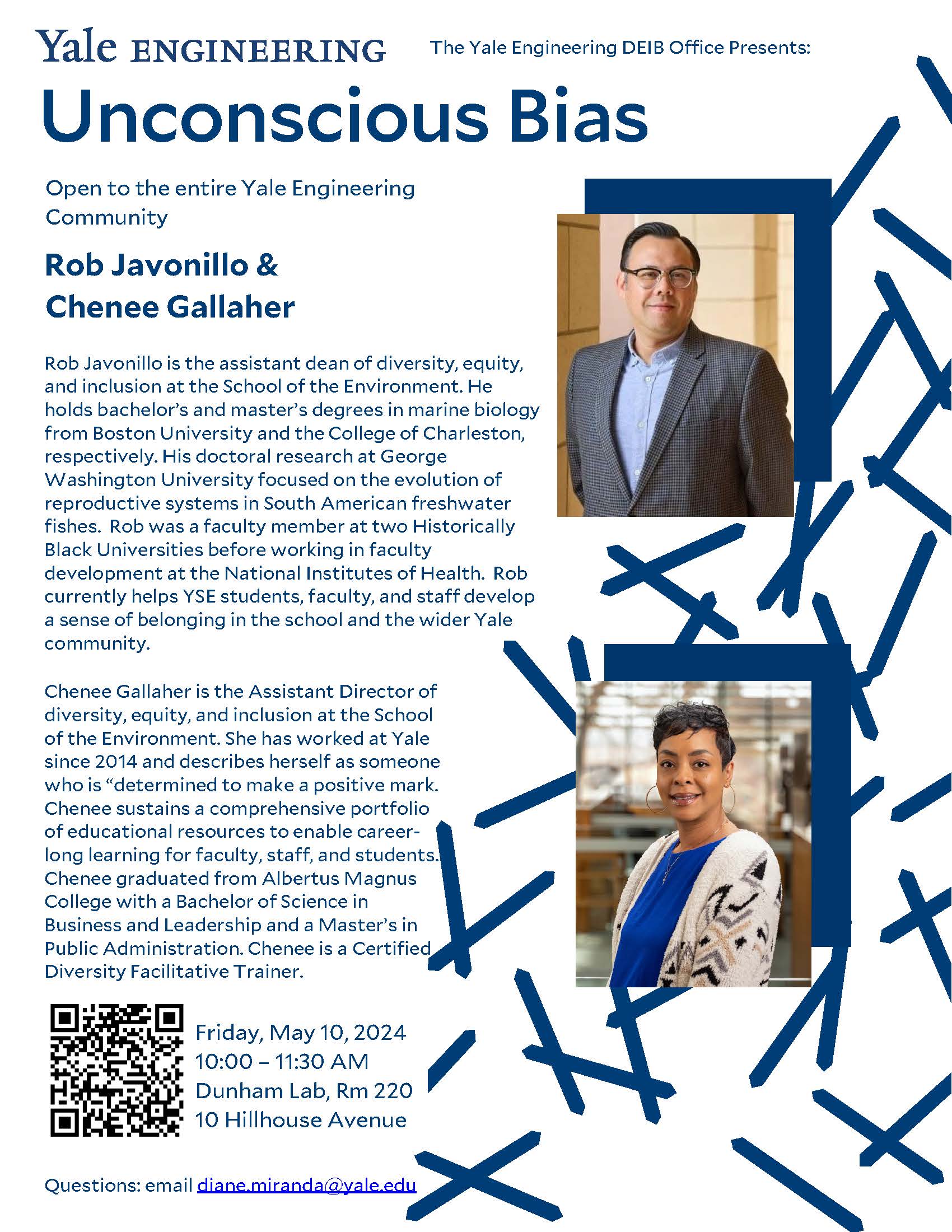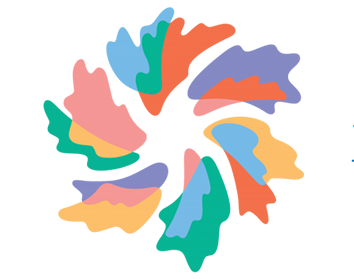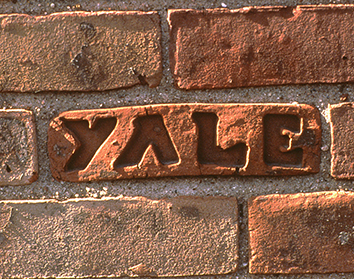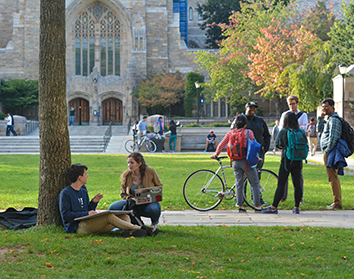SEAS Commitment to Diversity, Equity, Inclusion, and Belonging
The School of Engineering & Applied Science (SEAS) at Yale strives to create an inclusive and supportive environment for all members of its community to learn, work, and live our lives together. We acknowledge, welcome, and celebrate our differences, including those related to age, race and ethnicity, gender and gender identity, nationality, immigration status, sexual orientation, religion, disability status, and socioeconomic status. We work to prevent implicit biases from negatively impacting our community. Motivated by the understanding that research and education benefit from the supportive involvement of all people, we are committed to broadening participation and diversity in our departments and in our professions. We actively support the recruitment, retention, and success of undergraduate and graduate students, postdocs, staff, and faculty from varied backgrounds.
Action PlanGoals and actions strategically developed for SEAS to prioritize diversity, equity, inclusion, and belonging as fundamental in the pursuit of academic excellence. |
|
ResourcesA collection of resources at Yale, including links to policies, anonymous reporting hotlines, mental health & wellness, affinity groups, cultural centers, and many more resources. |
|
CommitteeHistory and current membership of the SEAS DEIB committee as well as a form to anonymously contact us. |
|
DashboardData about SEAS graduate student body composition, as well as statistics about admissions, retention, and job placement. |
|
Recent Events

Unconscious Bias
Hosted by Rob Javonillo & Chenee Gallaher
Rob Javonillo is the assistant dean of diversity, equity, and inclusion at the School of the Environment. He holds bachelor’s and master’s degrees in marine biology from Boston University and the College of Charleston, respectively. His doctoral research at George Washington University focused on the evolution of reproductive systems in South American freshwater fishes. Rob was a faculty member at two Historically Black Universities before working in faculty development at the National Institutes of Health. Rob currently helps YSE students, faculty, and staff develop a sense of belonging in the school and the wider Yale community.
Chenee Gallaher is the Assistant Director of diversity, equity, and inclusion at the School of the Environment. She has worked at Yale since 2014 and describes herself as someone who is “determined to make a positive mark.” Chenee sustains a comprehensive portfolio of educational resources to enable career-long learning for faculty, staff, and students. Chenee graduated from Albertus Magnus College with a Bachelor of Science in Business and Leadership and a Master’s in Public Administration. Chenee is a Certified Diversity Facilitative Trainer.
Friday, May 10, 2024
10:00 – 11:30 AM
Dunham Lab, Rm 220
10 Hillhouse Avenue
Open to the entire Yale Engineering Community
Questions? Contact Diane Miranda
Resources Related to Discrimination and Harassment
Yale is a community committed to fostering an environment of diversity, mutual respect, and intellectual discovery in which all students can thrive. Acts of discrimination and harassment are contrary to the community standards and ideals of our university. Yale does not tolerate discrimination or harassment on the basis of sex, sexual orientation, gender identity or expression, race, color, national or ethnic origin, religion, age, disability, or veteran status.
If you have experienced discrimination or harassment, been witness to a situation, or just need to talk, we encourage you to seek support. When you have concerns or questions, you have a wide range of choices for support.
You can reach out to a Discrimination and Harassment Resource Coordinator (DHRC) or the Office of Institutional Equity and Accessibility. DHRCs receive concerns and offer advice and guidance related to diversity and inclusion, discrimination and harassment, retaliation, and equal opportunity.
The DHRCs for Yale College are Melanie Boyd (melanie.boyd@yale.edu) and Howard Burgwell (burgwell.howard@yale.edu).
The DHRCs for the Graduate School of Arts and Sciences are Michelle Nearon (michelle.nearon@yale.edu), Ksenia Sidorenko (ksenia.sidorenko@yale.edu), Matthew Tanico (matthew.tanico@yale.edu), and Suzanne Young (suzanne.young@yale.edu).
If you would like to talk with someone about sex- or gender- based discrimination including sexual misconduct, you can reach out to a Deputy Title IX Coordinator. Additionally, The Title IX at Yale website provides information on accessing support, reporting options, policies and definitions; and education and outreach including resources for pregnant and parenting students.
The Deputy Title IX Coordinator for Yale College is Katie Shirley(katie.shirley@yale.edu).
The Deputy Title IX Coordinators for the Graduate School of Arts and Sciences are Michelle Nearon (michelle.nearon@yale.edu), Ksenia Sidorenko (ksenia.sidorenko@yale.edu), Matthew Tanico (matthew.tanico@yale.edu), and Suzanne Young (suzanne.young@yale.edu).
Resources:
- - Best Practices for Inclusive Teaching in Yale Computer Science, Yale CS Dept
- - Inclusive Lab Meetings in Engineering, Jenny Frederick, Poorvu Center for Teaching and Learning:
- Ten simple rules for productive lab meetings (also many good references)
- Ten simple rules for building an antiracist lab
- Reflections and Actions for Creating an Inclusive Lab Environment
- To Build an Inclusive Culture, Start with Inclusive Meetings
- Inclusive Zoom meetings
- Ten simple rules for building an antiracist lab





